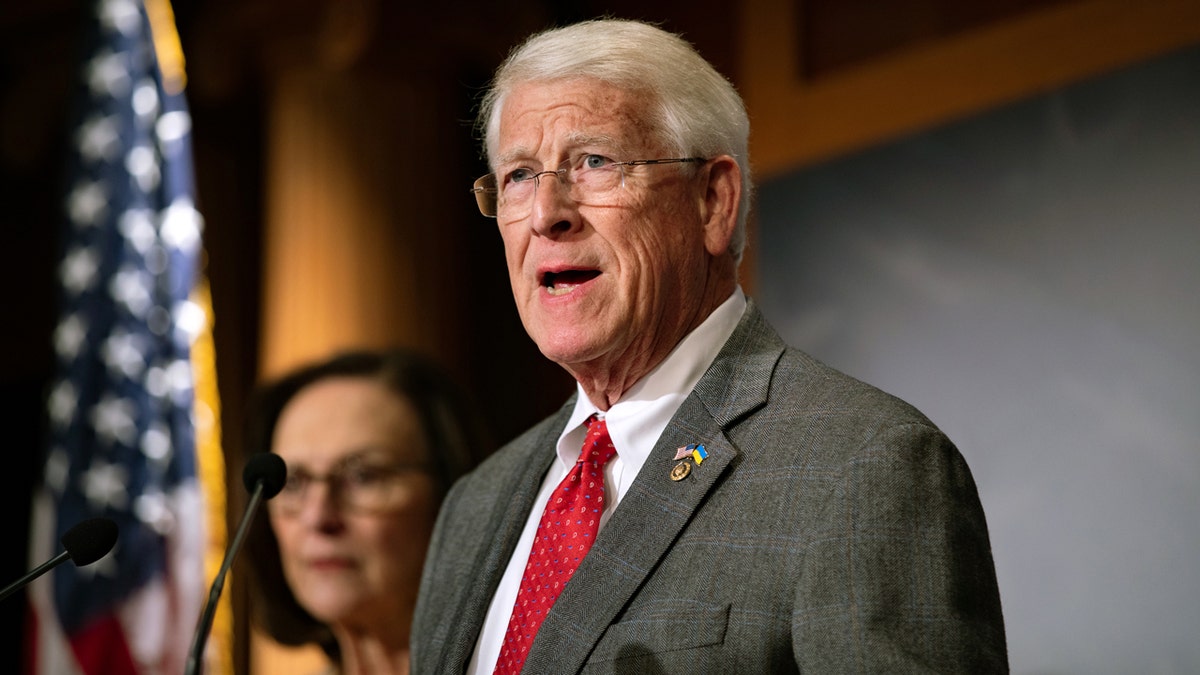
[snip]
This year’s version of the bill isn’t as divisive as its predecessor, given the lack of provisions targeting “woke” policies at the Pentagon, which became a major target for Republicans when they gained power in the House during the latter half of former President Joe Biden’s first term.

The White House confirmed plans to rename the Department of Defense. (Celal Gunes/Anadolu via Getty Images)
Instead, the measure focuses on military contracting reforms and lasers in on the Pentagon’s failure to complete, let alone pass, an audit for the last several years. It also includes a bump to service members’ pay, though not as high as in recent years. It also includes an extension to the Ukraine Security Assistance Initiative through 2028, and increases authorized funding to $500 million.
[snip]
It also comes on the heels of a $150 billion injection of defense spending passed in President Donald Trump’s “big, beautiful bill.”

President Donald Trump speaks about the relocation of U.S. Space Command headquarters from Colorado to Alabama in the Oval Office of the White House, Tuesday, Sept. 2, 2025, in Washington, as Vice President JD Vance and Defense Secretary Pete Hegseth listen. (AP Photo/Mark Schiefelbein)
Senate Armed Services Committee Chair Roger Wicker, R-Miss., said after the bill glided through committee in July that the “United States is operating in the most dangerous threat environment we have faced since World War II.”
[snip]
And Sen. Jack Reed, the Democrat on the panel, similarly agreed that the U.S. “faces a global security environment unlike any in recent memory.”

Sen. Roger Wicker, R-Miss., speaks to the press on Jan. 11, 2024, in Washington, D.C. (Anna Rose Layden/Getty Images)
“This legislation invests in the service members, technology, and capabilities we need to deter our adversaries and defend our national interests,” the Rhode Island Democrat said. “I thank Chairman Wicker and our colleagues on both sides of the aisle for advancing this bill to prioritize the safety and security of the American people.”
[snip]
Overall, the Senate’s version of the legislation would tee up nearly $925 billion in defense spending. That total is split among the Department of Defense at over $878 billion, the Department of Energy at over $35 billion with another $10 billion allocated for “defense-related activities” outside of the bill’s jurisdiction.
The House version of the bill clocked in at just over $848 billion, well below the Senate’s product but more in line with the Pentagon’s budget request for the upcoming fiscal year.
* Original Article:
https://www.foxnews.com/politics/senate-advances-defense-bill-boosting-service-member-pay-pentagon-reforms